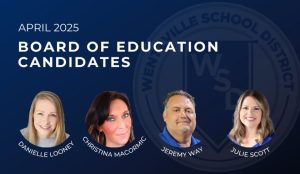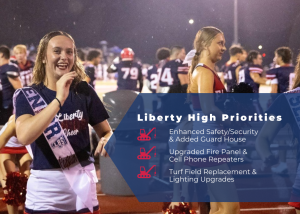Fooling Us All
Wentzville School District is not doing all it can to prevent falsehoods from influencing students
March 27, 2017
The words “fake news” have been thrown around a lot lately, however, they’re nothing more than a new term for something that has been around for longer than you might realize.
Evolving from “satire,” which is a writing for entertainment purposes only that is designed to make light of human shortfalls and mock their nature, fake news has turned into a powerhouse of misleading information which increasingly brands itself as fact. The issue here is that most people don’t even know what truly fake news is, and worst of all: They believe it.
If you ask President Trump, he will most likely tell you that CNN is a fake news outlet.
“I have come across [fake news] in the form of CNN, during the election and they tried to degrade Trump and showed support for Hillary,” said freshman Joey Mesnier.
Regardless of any potential bias, and the purposes of this article, we will be defining fake news as something that is definitely fake and is trying to be passed off as real, reliable information. By that definition, CNN may be biased, but is not a source of untrue statements trying to be passed off as fact.
So now that we’re familiar with the definition of fake news, consider where you’ve seen these fake facts. That’s right, they’re inescapable. Despite new measures taken by Facebook to weed out these sites, an increasing amount have blended real stories with their completely made up news in order to avoid the filter that Facebook uses.
The one place you might expect to be shielded from these falsehoods is at school, and more specifically, your school issued Chromebook. After all, the main goal in coming to school is to be educated with authentic and true information.
Unfortunately, if you subscribe to this belief, you’re mistaken.
An investigation led by the Liberty Publications program identified 17 of the most egregiously false news sites, well-known perpetrators of some of the most viral stories. Of these sites, 12 were unblocked on district issued Chromebooks and laptops.
Among these accessible websites is the Breitbart News Network, whose former editor in chief, Steve Bannon, is President Trump’s chief strategist. The website features hateful opinion pieces which use strong and suggestive language towards members of the LGBTQ community and other minorities. The site also supported the false story that high ranking members of the Democratic party were running a child prostitution ring, and used a Washington, D.C. pizza parlor as a front.
Eerily enough, stormfront.org, one of the oldest white supremacist news websites on the internet, was also not blocked. The site presents heavily biased news with strong and shocking language, while praising President Trump for his perceived alt-right beliefs.
Also unblocked is Politico, a site renowned for its left leaning beliefs. In stark contrast to stormfront.org and Breitbart, the site is very critical of President Trump’s recent executive orders and actions, such as the middle east travel ban that was blocked by a federal judge.
Additionally, it should be noted that fake news doesn’t just affect the political climate in America. Some, like natural news, are dedicated to spreading falsehoods about certain health foods, or “keys” to a healthy lifestyle that aren’t rooted in fact in any way. Particularly disturbing are their lengthy efforts to discourage the use of vaccines. They have claimed that vaccines cause autism, neurodevelopmental disorders, and even that they are manufactured with the cells of monkey kidneys and aborted human fetuses.
Seeing as all of the aforementioned websites, and then some, are available and accessible from district issued computers, it’s clear that the district should be taking a stand and protecting its students from unreliable information.
Liberty’s own CSI chrome lab students, seniors Sam Schutenberg and Nick Beseda shared that there is an algorithm that is used to block websites, using keywords and other information to judge its benefit for the school learning environment.
“Of course, teachers can request to unblock a website, but it first has to go through the technology department and the office,” said Liberty’s technology technician, Jesse Graf.
The root of the problem seems to stem from a lack of blocking, as opposed to overly unblocking these fake news websites.
“We have filters in place that keeps inappropriate websites from being accessible within the district. Ultimately, anyone can publish to the Internet and it’s important that students use critical thinking skills to validate the information they are reading. Using previous knowledge on a subject and research from multiple reputable websites is very important before coming to a conclusion on whether or not the information is truthful,” Greg Lawrence, Wentzville School District’s Director of Technology, said.
When asked if there was a specific initiative by the technology department to weed out fake news sites, the district’s response seemed inert at best. Now more than ever, it is important to make sure that students receive this correct information, because of the effect social media has on how we stay up to date on current events. Students shouldn’t be expected to do additional research on a topic before spewing it to the first person who will listen. With the ever convincing story format and believable content, using existing knowledge might not help a student decipher whether or not a story is completely false, mostly false, or true.









Caleb Woods | Apr 4, 2017 at 8:15 am
There are some fake news sites I found that are not blocked but I’m not sharing the sites here because this not the time or place.